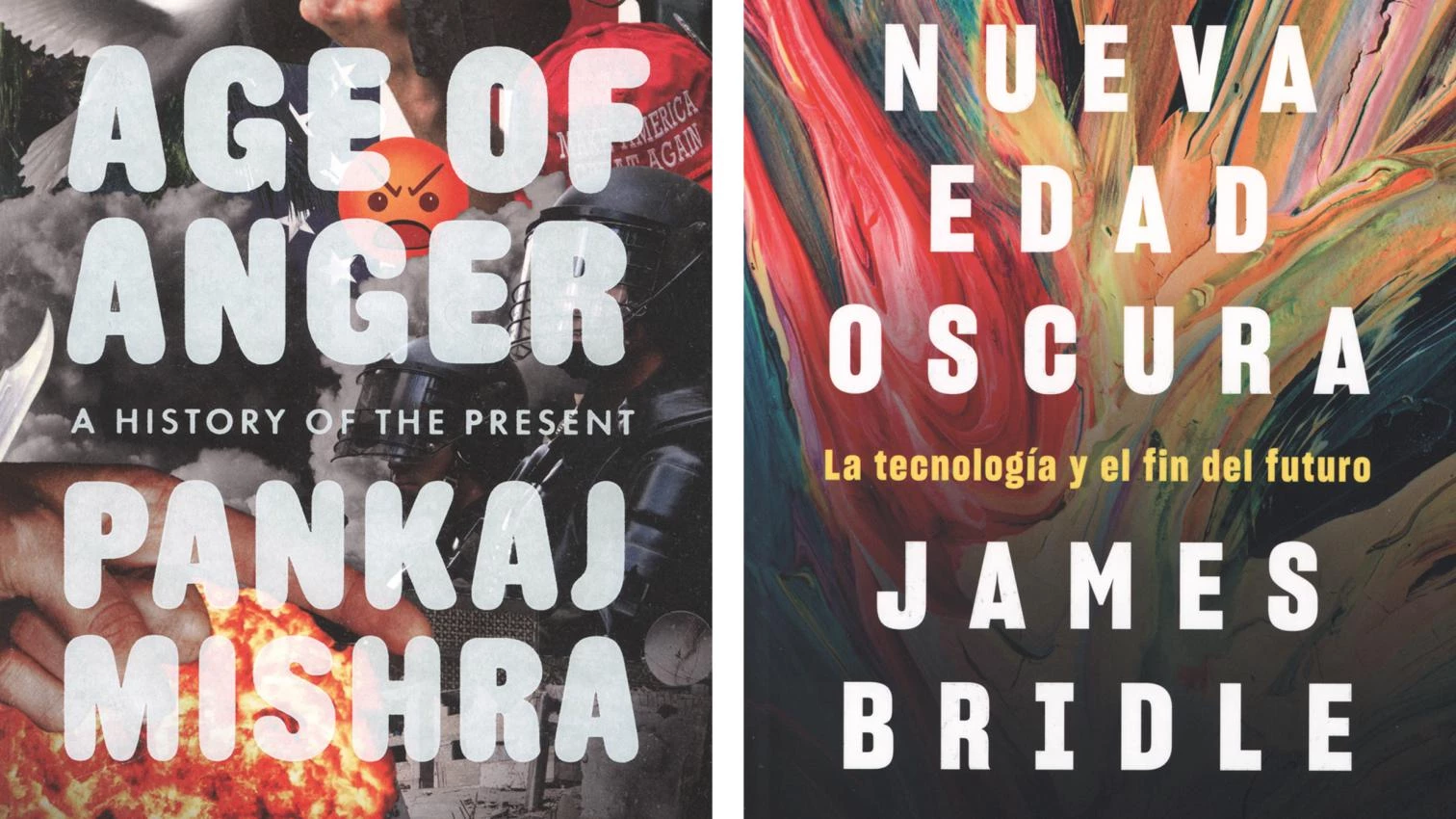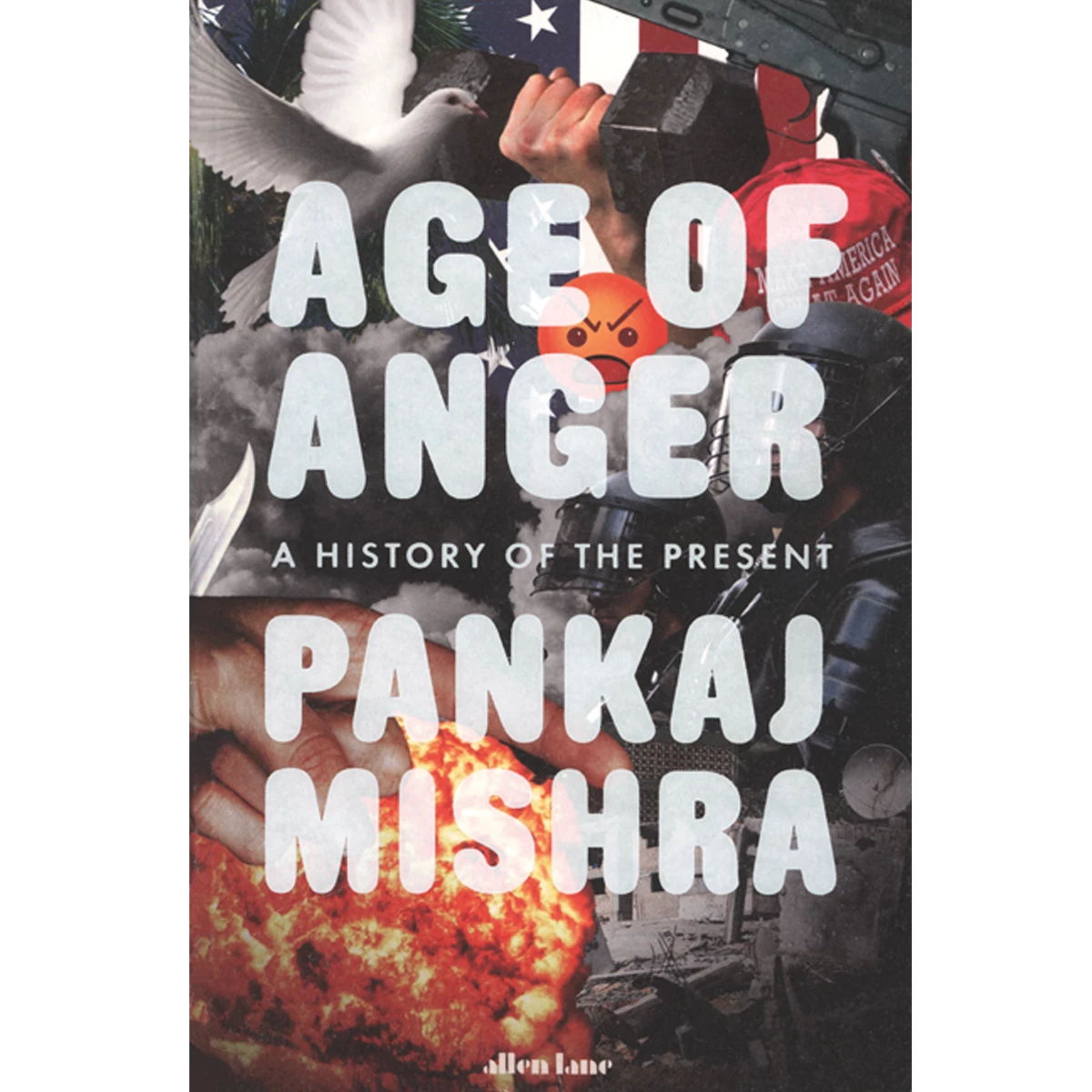
One Hundred years ago, in 1920, Edith Wharton published The Age of Innocence, a novel about the New York of the ‘Gilded Age’ that many know through the 1993 Scorsese film. If the writer described a vanished society in a time which after the Great War had lost its innocence, our own could well be called, borrowing W.H. Auden’s title, ‘the age of anxiety.’ The New York Times recently ran a long piece by its columnist Ross Douthat, ‘The Age of Decadence,’ where we are described as “cut off from the past and no longer optimistic about the future,” an aged society worried about coronavirus or nihilist violence, and nostalgic for the impulse that fifty years ago sent man to the Moon. Such despondence is conveyed by two texts by an Indian novelist and a British artist that make a somber diagnosis of contemporary society.
Pankaj Mishra claims to give a ‘history of the present’ in Age of Anger, but his analysis finds the roots of today’s resentments in the 18th century, motivated as he is by an observation Nietzche made on the conflict between Voltaire’s elitist serenity and Rousseau’s plebeian envy. The latter is indeed the thread of an essay that relies “more on novelists and poets than historians and sociologists,” but which is nonetheless a genuine study of the history of ideas, where Tocqueville and Herzen are made to share space with Dostoevsky or T.S. Eliot to describe Western modernity’s violent imposition on the planet, leaving behind nations and communities to create a fractured landscape, in which globalization is synonymous not to hope but to anxiety, and where the Internet has lost the egalitarian aura it had during the ‘age of innocence’ after the fall of the Berlin Wall.
The network of networks is precisely the protagonist of New Dark Age, where James Bridle explores the technological acceleration that has transformed the world, making it more complex and more hermetic, obscuring the perceptions of the future with the unanimous spread of ‘computational thinking.’ From the connection between weather forecasting and the birth of the computer to the contemporary debates on data, cryptoanalysis, or radioactive wastes, the book explores a ‘dark age’ where “the future is radically uncertain and the past is irrevocably in dispute.” Pointing out that the cloud is not ‘some magical faraway place’ but a physical infrastructure that consumes vast amounts of water and electricity, Bridle dismantles our fantasies about the digital sublime and warns against the ability of technique to make the world more opaque and unequal.
Both Mishra and Bridle write for major newspapers, which grants their prose an agility and a transparency bound to grip readers. And both approach their subjects from the stance of those marginalized by globalization and technology, which gives their books an ethical dimension to go with the intellectual stimulation they offer. Our age is not innocent, but should not be resigned to being ignorant.







